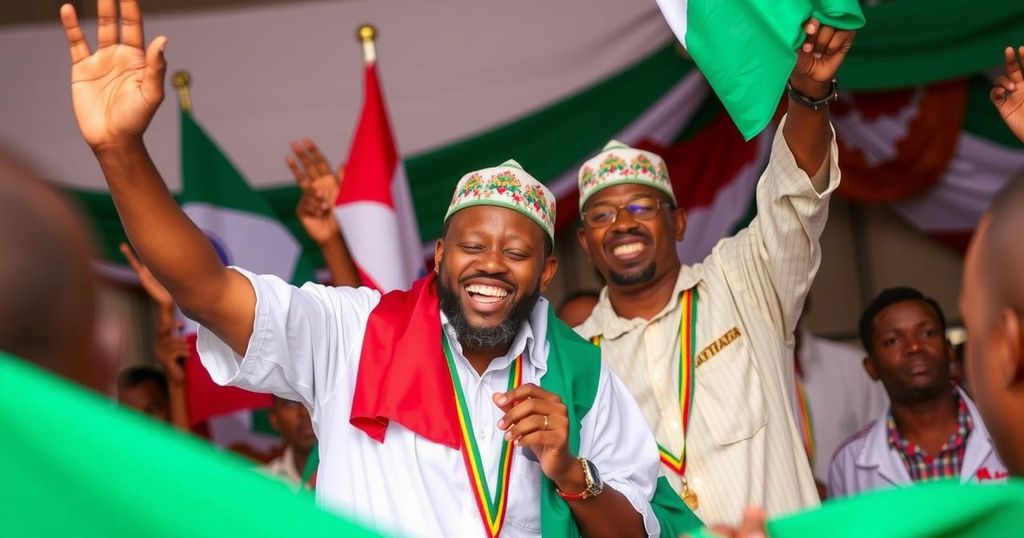Chad’s Ruling Party Secures Majority in Historic Parliamentary Elections

Chad’s ruling Patriotic Salvation Movement party won 124 out of 188 seats in the recent parliamentary elections, marking a significant step in the nation’s democratic transition. Despite a 51.5% voter turnout, numerous opposition parties boycotted the elections, raising concerns about legitimacy. Mahamat Idriss Deby emphasized that the elections would facilitate decentralization, although the country faces ongoing security challenges.
In the recent parliamentary elections held in Chad, the ruling Patriotic Salvation Movement party secured a substantial victory, obtaining 124 out of 188 available seats. This election marked a significant milestone as it was the first parliamentary contest in over ten years for the nation, which is currently transitioning towards democracy following the power shift led by Mahamat Idriss Deby in 2021. Despite a voter turnout of 51.5%, major opposition parties, including the prominent Transformers party, chose to boycott the election amidst ongoing security concerns. Deby projected optimism for the event, indicating that it would establish a foundation for a long-aspired decentralization process, thus distributing authority more evenly across provincial and municipal levels.
The victory of the ruling party is particularly noteworthy as it occurs during a period marked by considerable upheaval, including security threats from Boko Haram and a significant downturn in military relations with France, Chad’s historical ally. The recent elections were touted by Mahamat Idriss Deby as a crucial step in paving the way for decentralization, a system he claimed was eagerly anticipated by the citizens. However, the lack of participation from significant opposition parties raises questions about the overall legitimacy and inclusiveness of the electoral process in this transitional phase.
Deby’s assumption of power in the wake of his father, the late Idriss Deby Itno, laid the groundwork for the current electoral landscape, having previously secured a victory in a disputed presidential election. The scrutiny surrounding this election stems not only from opposition boycotts but also from lingering issues related to governance and security throughout the nation.
As the results were reported by Ahmed Bartchiret, head of the electoral commission, the response from the boycotting political groups remains ambiguous, highlighting the divisive nature of the political environment in Chad. Despite these challenges, the ruling party’s majority may influence the future governance structure within the nation, as it continues along its path towards democratic reform.
Chad has experienced a tumultuous political climate, especially following the death of long-serving President Idriss Deby Itno in 2021. His son, Mahamat Idriss Deby, took over as the head of a military junta as the country grappled with its shift towards democracy. This transition has been complicated by security threats, including terrorist attacks from Boko Haram and weakened diplomatic ties with France. The democratic process has been under scrutiny, with the recent parliamentary elections marking their first occurrence in over a decade amidst boycotts from the main opposition parties, raising concerns regarding their legitimacy.
The parliamentary elections in Chad represent a pivotal moment in the country’s journey towards democracy, as the ruling party has achieved a clear majority amidst opposition boycotts. While these elections signal progress and decentralization aspirations articulated by Mahamat Idriss Deby, ongoing security challenges and political divisions underline the complexity of governance in Chad. It remains to be seen how these developments will influence the country’s future political landscape.
Original Source: www.trtworld.com






